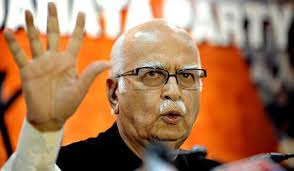Lucknow, Jun 13: Bharatiya Janata Party (BJP) patriarch L K Advani may have taken back his resignation and accepted the party’s decision to elevate Narendra Modi to the post of campaign chief for the 2014 polls, but the Uttar Pradesh unit of the saffron party, which is gearing up to face the next Lok Sabha elections under the charge of Modi's right hand man Amit Shah, has already written him off. Advani has made a quiet exit from the posters of the BJP in the state. 
Shah, who arrived in the state capital on Wednesday to meet the state party leaders and workers to discuss ways and means to strengthen the party at the grassroots level, and chalk out a strategy to face the polls, was given a rousing reception.
The posters and banners that adorned the walls in different parts of the city, however, did not feature Advani. Only BJP chief Rajnath Singh and the Gujarat Chief Minister Narendra Modi’s photos were on them.
“UP is very important to us. We will strive to strengthen our organisation here,” said Shah, who has been given the charge of the state unit. He would meet party MLAs, leaders and workers during his stay here.
He, however, remained silent on whether Modi would contest the next Lok Sabha elections from the Lucknow parliamentary constituency.
“The National Democratic Alliance will win over 300 seats in the next general election and form the government,” he claimed.The BJP had won 57 seats in 1998 Lok Sabha poll. “We can repeat the performance,” he added.
The arrival of Shah, who faces allegations of being involved in the Sohrabuddin encounter case, was greeted with sharp criticism from the Samajwadi Party (SP). “We will not allow UP to be turned into a Gujarat. We will not tolerate any attempt to vitiate the communal atmosphere in the state,” SP leader Rajendra Chaudhary said.





Comments
Add new comment